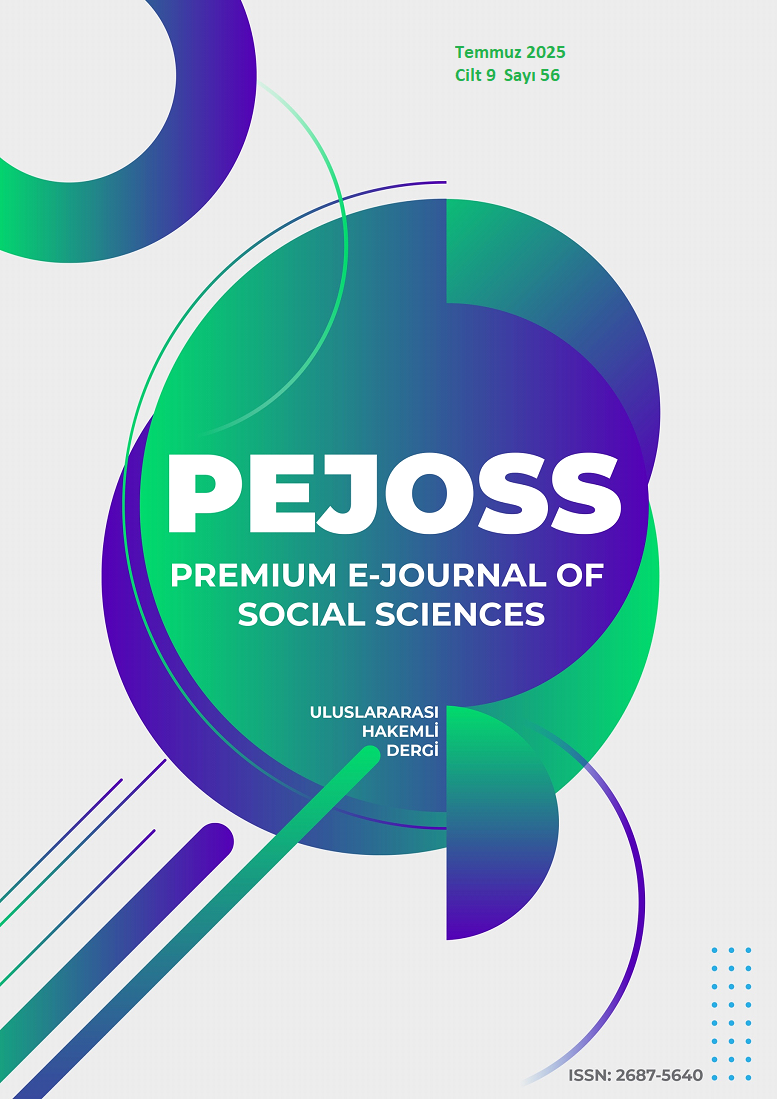Accountabiliy Politics in Selected Countries
DOI:
https://doi.org/10.5281/zenodo.16732219Keywords:
Accountability, Transparency, Education, Educational PoliticsAbstract
The countries examined in terms of accountability policies are Scotland, the Netherlands, Norway, New Zealand, Canada, Germany, Hungary, and Switzerland.
The basic information used in defining accountability policies comes from various sources. This section discusses the perspectives of teachers and principals in each school on accountability. One such question is what teachers in these countries understand the concept of accountability in their own schools and classrooms. It seeks to answer the questions of what the stakeholders of the education system and the needs of teachers are.
Downloads
References
Adu, E. (2014). Internal and External School Supervision: Issues, Challenges and Wayforward. International Journal of Sciences, 269-278
Apple, M. W. (1996). Cultural politics and education. Teachers College Press.
Bacon, C. (2015). Student accountability in education reform. Ontario Education Review Journal, 47(2),
Bello. (2006). Supervisory relationships course outline. Unpublished Manuscript34–41.
Black, P. (1994). Assessment and classroom learning. Assessment in Education, 1(1), 7–74.
Briseid, O. (1995). Education reforms in Norway: Policies and outcomes. Scandinavian Journal of Educational Research, 39(4), 319–332.
Bullock, A., & Thomas, R. (1997). The effectiveness of school inspection systems. Routledge.
Butterworth, G. (1998). Reforming Education: The New Zealand Experience, 1984 – 1996. Palmerstone : Dunmore Press
Canadian Education Statistics Council. (1996). Education indicators in Canada. Statistics Canada.
Carroll, J. (1997). National certificates and qualifications in New Zealand. New Zealand Journal of Education, 12(1), 21–35.
Cookson, P. (1992). The Rise of School Choice Movement. Educational Policy, 99-104
Conley, D. T. (1995). Roadmap to restructuring: Policies, practices and the emerging visions of schooling. ERIC Clearinghouse.
Conley, D. T., & Odden, A. (1997). Linking teacher compensation to teacher career development. American Journal of Education, 105(4), 389–415.
Darling-Hammond, L. (1991). The policy and politics of teacher certification. Educational Evaluation and Policy Analysis, 13(1), 5–29.
Davis, D. (1998). Accountability mechanisms in educational systems: A cross-national comparison. Educational Management and Administration, 26(3), 243–258.
Dwyer, C. A. (1994). School accountability and student achievement: A review of the literature. Educational Measurement: Issues and Practice, 13(4), 5–15.
Earl, K. (2010). Educational Accountability Effects: An International Perspective. Peabody Journal of Education, 1-18
Ellwein, M. C. (1991). Effective school evaluation: Insights from the UK. School Effectiveness and School Improvement, 2(2), 100–116.
Erickson, D. A. (1995). International perspectives on educational reform and policy implementation. ASCD.
Firestone, W. A., & Mayrowetz, D. (1998). Rethinking "high stakes": Lessons from the United States and Canada. Teachers College Record, 100(4), 724–749.
Finn, C. E. (1996). The state of education reform in Central Europe. International Education Review, 42(3), 250–266.
Finn, C. E., & Ravitch, D. (1995). Better teachers, better schools. Thomas B. Fordham Foundation.
Fullan, M. (1992). The new meaning of educational change. Teachers College Press.
Gamoran, A. (1996). Student achievement in public magnet, public comprehensive, and private city high schools. Educational Evaluation and Policy Analysis, 18(1), 1–18.
Hausman, C. (1997). Accountability and the role of testing in Canadian education. Canadian Journal of Education, 22(4), 378–391.
Head, M. (2010). School councils and school improvement: Reflections from Ontario. Ontario Education Research Journal, 52(2), 45–57.
Leithwood. (1998). Educational governance and student achievement. Orbit, 34-37
Leithwood, K. A. (2001). Accountability policies and educational leadership in Europe. Educational Management & Administration, 29(2), 203–218.
Leithwood, K. A., & Aitken, R. (1995). Making schools smarter: A system for monitoring school and district progress. Corwin Press.
Leithwood, K. A., & Edge, K. (1999). Educational accountability and school performance in Canada. Canadian Journal of Educational Administration and Policy, (11), 1–20.
Linn, R. L. (1987). Accountability: A measured approach. Educational Researcher, 16(6), 27–38.
Linn, R. L. (1997). Assessments and accountability. Educational Researcher, 26(6), 4–16.
Louis, K. S. (1995). Professionalism and community: Perspectives on reforming urban schools. Corwin Press.
Madsen, J. (1996). Private and public school partnerships: Sharing lessons about decentralization. Educational Policy Analysis Archives, 4(8).
Meier, D. (1997). Can standards save public schools? The American Prospect, 8(31), 50–57.
Mestinsek, J. (1993). Educational accountability in the Netherlands. Dutch Education Council Publications.
Mohrman, A. M. (1996). Reforming school systems through decentralization and accountability. Educational Administration Quarterly, 32(1), 1–29.
Nathan, J. (1998). Heat and light in the charter school movement. Phi Delta Kappan, 79(6), 442–449.
Neil, P. (1995). Assessing pupil performance in Europe. Oxford Review of Education, 21(3), 303–315.
New Zealand Government. (2018). Tomorrow’s schools review: Discussion document. Ministry of Education.
New Zealand Ministry of Education. (2021). New Zealand curriculum framework. MOE Publications.
Paris, S. G. (1998). Education reform in global contexts: The case of Norway. Comparative Education Review, 42(1), 71–95.
Peters, M. (1992). Performance indicators in New Zealand higher education: Accountability or control? Journal of Education Policy, 267-283
Porter, A. C. (1991). Creating a system of school assessment: The role of indicators. Educational Evaluation and Policy Analysis, 13(1), 13–29.
Rehfuss, J. (1995). Public education and accountability in Germany. European Journal of Education, 30(1), 47–58.
Ritzen, J. (1997). Education, economic growth and equity: The Dutch experience since the 1970s. Education Economics, 5(3), 243–259.
Saks, M. (1997). Education in Switzerland: A decentralized model. Swiss Journal of Educational Research, 19(2), 101–118.
Smithson, J. (1995). Describing the enacted curriculum: Development and dissemination of opportunity to learn indicators in science education. . Columbia: SCASS
Scriven, M. (1994). Evaluation as a discipline. Studies in Educational Evaluation, 20(1), 147–166.
Urbanski, A. (1998). Teacher professionalism and teacher accountability: Toward a more genuine teaching profession. Educational Policy, 449-557.
Willms, J. (1995). The challenge of developing new educational indicators. . Educational Evaluation and Policy Analysis, 113-131
Wohlstetter, P. (1992). Decentralization and school-based management. Phi Delta Kappan, 74(1), 35–40.
Downloads
Published
How to Cite
Issue
Section
License
Copyright (c) 2025 Premium e-Journal of Social Science (PEJOSS)

This work is licensed under a Creative Commons Attribution 4.0 International License.


